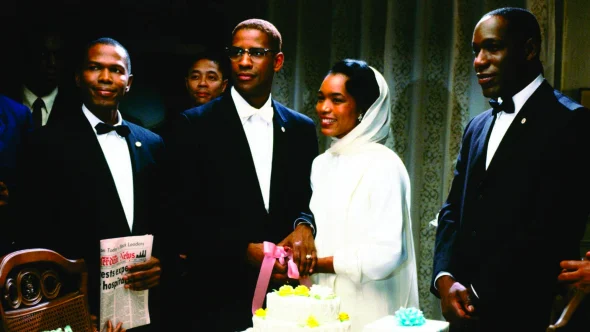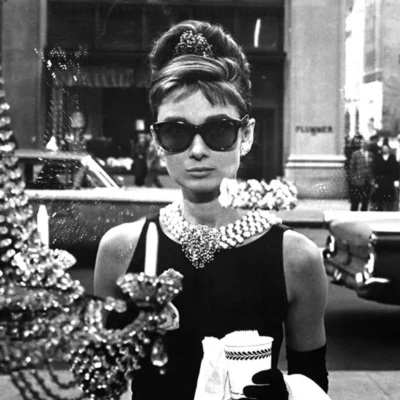
Kris Bowers is an Academy member, composer, and Steinway artist. His most recent work can be heard in the limited series, 'Mrs. America.'
In the spirit of the #BlackLivesMatter movement, I chose these five film scores by Black composers as works that have affected my process and path as a musician, as well as to highlight their contributions to film and music. After I made this list, I realized that all of these choices are each of these composers' first foray into the field of film scoring — outside of Malcolm X, which is Terence Blanchard's second.
I hope that you enjoy (re-)discovering the music.

Music by: Miles Davis
The score for this film is the essence of film scoring in its rawest form. I hadn't known about this film or score until fairly recently, but the story of how it was made had a profound impact on me and my compositional process. Louis Malle, the film's director, had Miles watch the film a handful of times, and then improvise a score, live to picture. Watching footage of this process is fascinating. Miles watches the screen with such intensity and focus, and knowing about his appreciation and respect for silence, you can tell that each note is played with so much intention, heart, and care.
It's also interesting to note that outside of the drummer Kenny Clarke (who was an expatriate at the time), the entire band is French, and musicians Miles most likely had only played with a few times — if not only for this score. This speaks to the universality of music, and how an improvisatory music like jazz can allow for collaborations between strangers from completely different worlds. Lastly, this score was completed just before Miles recorded Milestones and Kind of Blue. That period of his music shaped an entire era and sound in the jazz world, and this score sounds like such a precursor to these seminal recordings.

Music by: Quincy Jones
Henry Mancini once said that he recommended Quincy for this project, and the response was, "Can Black men write film music?" First off, this highlights the importance of being an "ally" and an agent of change when it comes to diversity. Quincy was already a world-renowned composer, arranger, and producer, having gone to the Berklee School of Music, the Boston Conservatory, and studied with the likes of Nadia Boulanger and Olivier Messiaen. There's no doubt an opportunity as a film composer was going to come at some point, but this response to Mancini's recommendation has always stuck with me.
Although Quincy wouldn't have been the first African-American film composer at that time — Benny Carter, Gerald Wilson, and a few others came before him — he would be the first to be hired to write for a film that wasn't looking for a "jazz"-sounding score. The main theme is hands-down one of the greatest main themes of all time.

Music by: Duke Ellington and Billy Strayhorn
Duke Ellington is one of those composers who is immediately recognizable within a few notes. His score for Anatomy of a Murder is no exception to this. From the first plunger melody, Duke makes his presence known in such a unique way for the time, and I've always loved how the score as a whole feels so unapologetic. I had the opportunity to play some of this music with the Juilliard Big Band, and there's something about it that's infectious. It's one of the rare scores that can exist as concert music without the film, and it still holds up as incredible art. Duke was always known to write in a way that allowed his musicians to bring their own personalities to the music. At times, he would ask a player to riff, and then that "riff" would end up in the piece. Because of this, even in this score, you can clearly hear musical appearances by saxophonists Johnny Hodges and Paul Gonsalves, and trumpeter William "Cat" Anderson. Duke also makes a cameo in the film, which speaks to how much of a celebrity he was at the time.

Music by: Terence Blanchard
I started studying jazz at around eight or nine, and eventually discovered a deep connection to film music around the age of 12. Right around then, Terence Blanchard became my hero. Not only was — and is — his band easily in my top five favorite jazz groups, the way he has balanced a prolific career in both film music and in the concert world has been awe-inspiring. Funny enough, I got the chance to meet Terence when I was about 13, and he's become a friend and mentor ever since. The sound that he created for so many Spike Lee joints is just as instantly recognizable as the aforementioned Duke and Miles scores. This film and its score are classic and required viewing. Especially in a time like now.
Music by: Michael Abels
I'll never forget sitting in the theater and hearing the first notes of this score. Had I not been someone who practices good theater etiquette, I would have looked up the composer right then and there. Not only did it feel like something I'd never heard before, I could hear the depth of musical knowledge and understanding of the craft. The nods to Bernard Hermann, Bartok, Penderecki, and others, yet with this really unique, left-of-center sound. I was even more surprised to hear that not only was this Michael's first score, but Jordan Peele found him via YouTube!
This film changed our industry as we know it, and it would have been a very different film without the character, power, and beauty of Michael's score. I must also mention the amazing work Michael is doing with the Composers Diversity Collective, an organization he cofounded to increase visibility for composers of color, as well as connect and offer education and mentorship to emerging composers in underserved communities.






